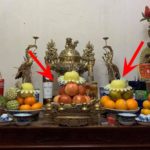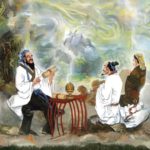Ulambana, or the 15th day of the seventh lunar month, is a significant day in spiritual culture. It is a time to practice and reinforce the virtue of filial piety towards parents, ancestors, and fallen heroes. During this Ulambana festival, many families and organizations hold elaborate ceremonies and burn a lot of joss paper.
This year, in the 204th Public Notice on organizing the Ulambana Festival of Filial Piety in the Buddhist calendar of 2568 – corresponding to the year 2024 in the Gregorian calendar, the Most Venerable Thich Thien Nhon, Deputy Patriarch of the Sangha Supreme Patriarch, and President of the VBS Executive Council, noted the importance of organizing and purchasing offerings, including a reminder not to burn joss paper to prevent fire hazards. The Most Venerable also suggested engaging in practical charitable acts to help those in need, as a way to accumulate good karma and show respect to ancestors and parents.
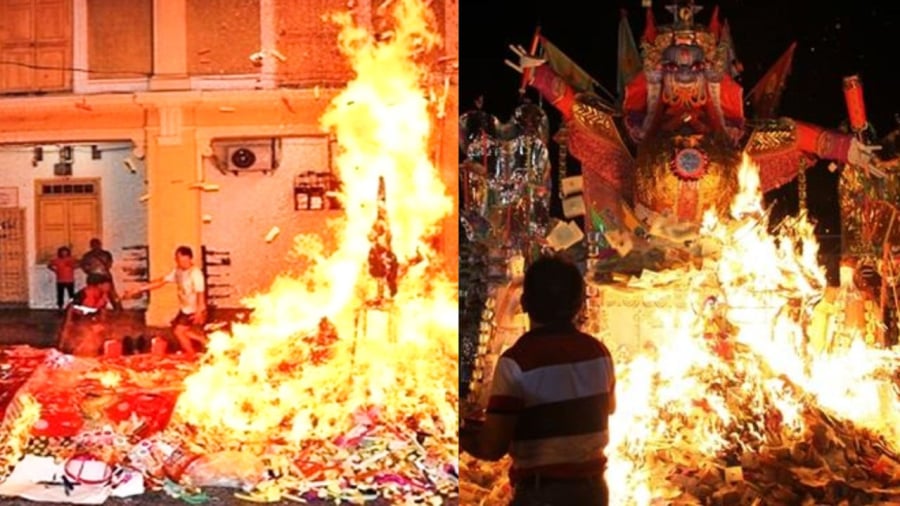
Burning joss paper is wasteful and dangerous
Previously, the Buddhist Sangha had also advised against burning joss paper during Tet (Lunar New Year) and the 15th day of every lunar month.
According to Buddhist teachings, burning joss paper is not encouraged. Doing so only makes the deceased linger in the mortal realm, unable to focus on transcending to a better realm, thus remaining trapped in suffering.
What is the origin of burning joss paper?
The majority of Vietnamese people follow the custom of ancestor worship. When praying, they often say, “Nam mo A Di Da Phat” without fully understanding its meaning, which is to pay respect to the Enlightened One, and to follow the teachings of the Buddha.
If one follows the Buddha’s teachings, there would be no practice of burning joss paper. This custom originated in China. According to Confucian teachings in the I Ching, in ancient times, the dead were simply buried without any concept of graves, coffins, or funerary objects. During the Zhou Dynasty (1122 BC), there was a practice of burying the dead with their valuable possessions, including beloved concubines and favored subordinates. As this practice was deemed inhumane, it was eventually abolished. In 105 AD, during the Han Dynasty, Tai Linh invented paper made from the Daphne odora tree. With the invention of paper, Wang Yu thought of making paper versions of gold, silver, and clothing to burn as offerings instead of actual valuables. This was considered a humane act at the time, preventing waste and reducing the cost of funerals.
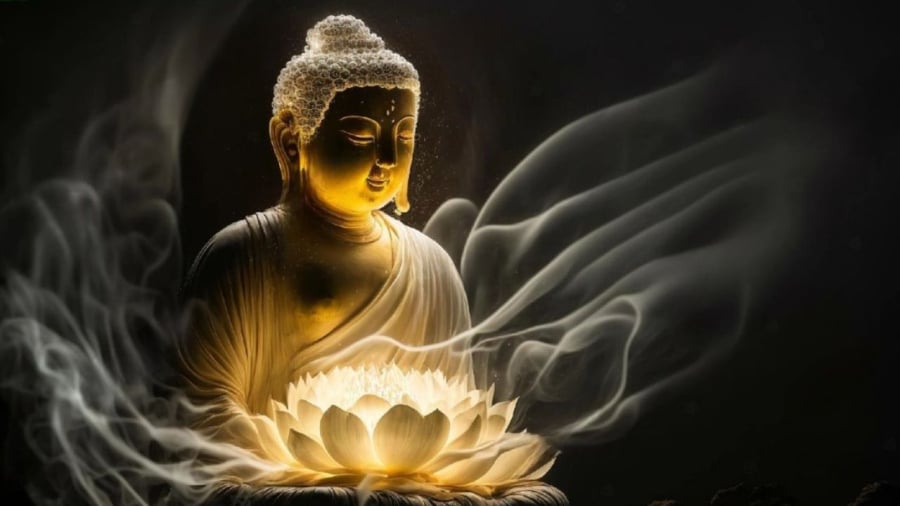
Orthodox Buddhism does not encourage burning joss paper
During the reign of King Da Zong of the Tang Dynasty (762 AD), when Buddhism was flourishing, a monk named Dao Tang wanted to attract more people to Buddhism. He took advantage of the custom of burning joss paper and suggested to the king that he should encourage the people to burn large quantities of joss paper as offerings to the deceased on the 15th day of the seventh lunar month (the Ulambana festival). The king, wanting to gain favor with the people, agreed.
The people, already steeped in superstition, enthusiastically followed the king’s suggestion and burned joss paper to offer to their ancestors, and even Buddhist followers did the same. However, Buddhist scriptures only mention the 15th day of the seventh month in relation to the story of Maudgalyayana’s filial piety. Many monks objected, and as more people became enlightened, the joss paper business suffered. Wang Yun, Wang Yu’s brother, came up with a scheme to boost sales. He had someone pretend to be sick and then die, with the body placed in a coffin with ventilation. When neighbors and acquaintances came to pay their respects, Wang Yun burned paper offerings, including paper effigies and money. The coffin shook, and the person inside, pretending to be a resurrected soul, sat up as if he had escaped the underworld. This classic marketing ploy continues to influence people to this day.
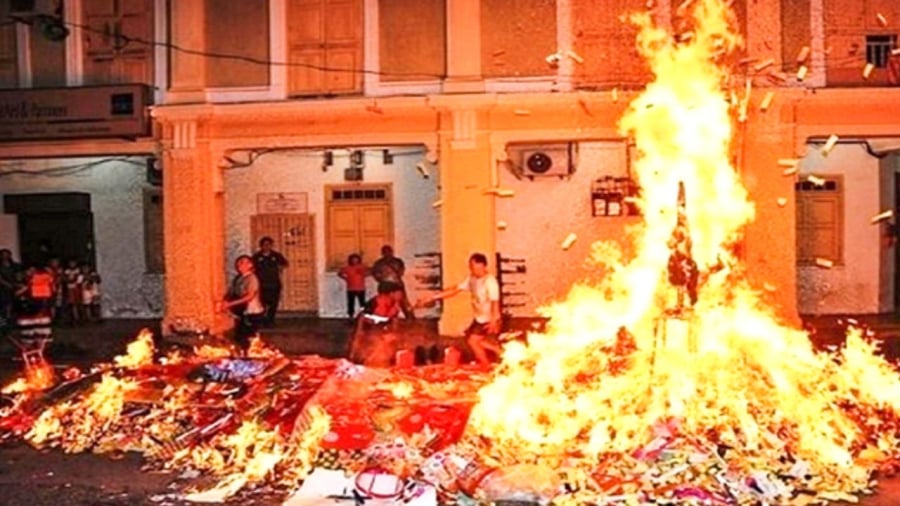
From a humane custom to superstition and waste
How can we show filial piety to our ancestors without burning joss paper?
Buddhism discourages burning joss paper as it is wasteful and can cause fires. There have been many incidents of fires caused by burning joss paper, especially during the 15th day of the seventh lunar month and the Tet holiday. Instead of burning joss paper, we can honor our ancestors by:
– Offering real food and then donating it to those in need, sharing with the less fortunate.
– Performing charitable acts and dedicating the merit to our ancestors, cultivating their positive traits, and fulfilling their noble wishes.
– The original intention behind burning joss paper was relatively humane, as it helped put an end to the inhumane practice of burying people and their possessions together. However, over time, it has become a wasteful and superstitious practice that causes environmental pollution and increases the risk of fires. Therefore, if one wishes to express their respect to their ancestors, it is acceptable to burn a small amount of joss paper for peace of mind, but excessive burning is harmful and wasteful.

























